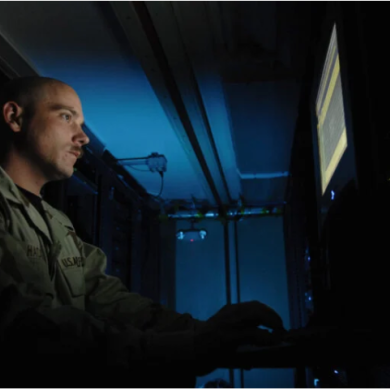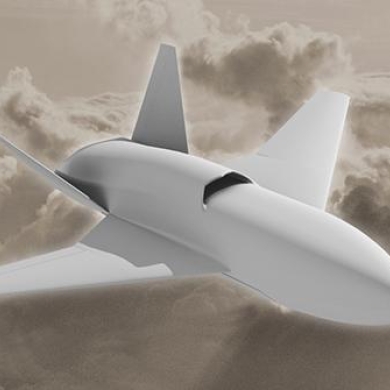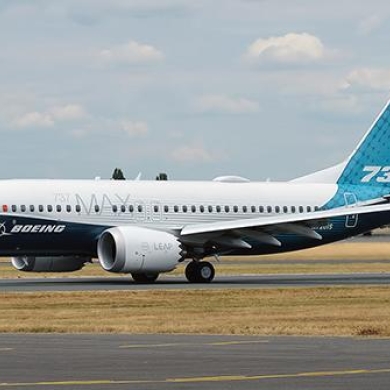July 17, 2020
Jens Flottau July 14, 2020
Guillaume Faury became CEO of Airbus Group in April 2019 after just over a year as president of the company's commercial aircraft business. With only one year in the job behind him, the 52-year-old has to steer Airbus through the worst crisis commercial aviation has ever faced, cutting costs where possible while protecting substance where needed. Faury met with Aviation Week Executive Editor for Commercial Aviation Jens Flottau at Airbus headquarters in Toulouse. With air travel all but impossible throughout the spring, it was their first in-person meeting in several months.
AW&ST: You cut production by around 40% to respond to the COVID-19 crisis. When do you expect a recovery? We don't think we'll see 2019 delivery rates again before 2023 to 2025. We made a very early [production cut] in the beginning of April because we had to. There was a lot of guessing and assumptions, but it turned out we were not too wrong. We still will be making minor adjustments, as in normal times. We have growing clarity for the short term—2020 and 2021. It's more difficult to assess when the recovery will come. The single-aisle market will recover before the widebodies.
So your initial guess was pretty accurate? For the short term, yes. We still think that 40 narrowbodies per month is the right rate for 2020 and 2021. It might change a bit, but not significantly. I am not suggesting I know where it will be in 2024. I don't. We have models and are preparing to be able to ramp up again. It is likely that the recovery will see massive demand, so the ramp-up will have to be steep. I see that in 2022 or 2023, a bit later for widebodies.
But we have to be super-humble. The shape of the traffic recovery itself is still to be seen. There should be a relatively stable recovery in the summer and the second half for domestic flights, and long-distance travel should have largely recovered by the middle of next year. This is the kind of timeframe we need on the traffic side for us to resume 2019 deliveries between 2023 and 2025.
Are you assuming a second coronavirus wave in your models? There will be small second waves, but we are not assuming a major second wave next winter as big as 2020 in terms of impact on traffic. As long as there is no vaccine, there will be ups and downs, small confinements and reopenings.
You plan to eliminate 15,000 positions within one year. To what extent is there a danger that Airbus is losing substance and experience that it needs once the demand returns? We cannot escape the developments affecting the airlines and the industry as a whole. This crisis is unprecedented, and its scale requires us to adapt quickly to the new market environment to secure the future of our company. Going through this transition, we will work with our social partners in order to limit the social impact of our COVID-19 adaptation plan. We will rely on the full set of measures available while retaining our skills, competences and know-how as much as possible so we can be ready to meet our customer demand when the market recovers.
You are still in the middle of deferral discussions with your customers. We are working with all customers. There are as many different situations as we have customers, and it changes almost every day. The situation is extremely difficult. Any new agreement will be painful but has to be acceptable for everyone. That is the balance we need to strike.
There was a point in time when the customers really had difficulties defining the way forward. They were grounded; some of them had no liquidity for the coming months. They had to go through their own crisis management. The timing differed, depending where on the globe they were based and when they were impacted by COVID-19. Some now have a defined battle plan, and others are still negotiating the situation. Sometimes we have intermediate agreements with them to gain more time. We are getting more visibility, and everyone is betting on a certain speed of traffic recovery. But we are still negotiating with a lot of uncertainties in front of us.
EasyJet recently negotiated a very precise agreement with you that detailed the new delivery sequence. Is that the kind of blueprint deal that you are trying to achieve with every customer? Yes, that is what we are trying to achieve with airlines—new contractual agreements that give visibility to the customer and to us.
Given reduced production rates, is the current industrial footprint with assembly lines in five different locations sustainable? We will not invest money now to restructure when we know that we have a setup that works. It's more complex than our competitor's, and that comes with benefits that will be very important in a more fragmented world. Being very American in the U.S. in Mobile, Alabama, and being a strong partner in China in Tianjin will have value. Airbus has learned over the years to manage complexity. It is one of our strengths. We have to live with less revenue in the short term, but in the long term aviation will come back.
Although Airbus has cut the A330neo production rate to two a month, Faury has confidence in the program in the medium and long term. Credit: H. Gousse/Airbus
Speaking of the short term, small aircraft seem to be benefiting from the lower traffic volumes. Do you think that there will be a behavioral shift—with airlines no longer focusing on unit costs but on trip costs and thus smaller aircraft? The business model of airlines is mainly fixed costs and variable revenues. When you are in a stable environment, you are more interested in costs per seat-kilometer. When there is risk, you have to minimize your exposure, therefore you focus on cost per trip and smaller modules. I think that is what we will see for the next few years. Smaller planes on the same routes, point-to-point as much as possible. Small modules with long range are likely to be a winner, at least for a certain period of time. The A220 and the long-range versions of the A321neo should really make a lot of sense, along with the A350 for longer distances.
Airbus has cut the A330neo rate to two a month. Its biggest customer, Air Asia X, is facing difficulties, and the in-service fleet is relatively young. Is the program now in question? No. The rates are lower, but some of the production slots are for military variants, which de-risks the program. The A330neo is not more impacted than others. It's an aircraft with good economics. That we had to cut rates now doesn't say anything about the medium and long term. We'll stick with that product, to be very clear.
On top of COVID-19, Boeing is also facing the problems with the 737 MAX. Will that lead to a permanent shift of market share in Airbus' favor? We have seen so many changes since the end of 2018, when Boeing was unreachable, that we have to remain humble. We are focusing on our customers and not really thinking about market share for the moment. Obviously, today's market share reflects the grounding of the MAX, but Boeing is working on getting it back into service, and when it is, the picture will change again.
Are you concerned that Boeing might somehow find the money to launch a clean-sheet successor to the MAX sooner than expected?
That question was on the table before COVID-19, but the pandemic is pushing it off the table. I don't see anyone launching a new plane with this level of uncertainty on so many fronts, in particular a competitor [focused on] returning the MAX to service. It is for them to say what they intend to do, but I think their priority is somewhere else.
How much will Airbus benefit from the termination of Boeing's deal to acquire a controlling share of Embraer's commercial aircraft business? It depends on what happens. They will have to find a way forward. Their previous plan was to sort of mirror what we did with the A220, and it made sense from my point of view. Events have led to a different situation. This raises questions for Boeing probably to a bigger extent than for Embraer.
The French and German governments released financial support packages for the industry that are tied to technology targets. Will these force the industry to accelerate innovation? We played a role in the discussions with the government. [The package] is designed to develop the technologies to prepare for the next generation. Obviously, the post-COVID-19 world will be even more focused on the environment. We're not being forced; it is an opportunity. It is not designed to launch programs and therefore not related to your question about a new plane. It is designed to prepare the launch of a new plane at a later stage with a package of technologies that does not exist today and that we need to develop and mature. COVID-19 is in some respects slowing us down [in making] big investments for which you need certainty and visibility. But it is an accelerator when it comes to increasing your agility and flexibility to adapt to future trends.
So, it seems the first target is a regional aircraft? Ah, people are trying to give different names to what we are doing. We are focusing on technologies, designed for the next generation of planes. It has not been decided what will be the first program. It will probably be at the low end of the market, but I can't tell you where.
But there is a timeline the French government has defined? Ask them. I can tell you what we discussed with them and what we think is reasonable. It is the entry into service of the first fully decarbonized plane by 2035. It is really something I believe in because it means launch of the program in 2027 or 2028. We have to mature the technologies by 2025; then you have two years to prepare the launch, consult the suppliers, define the general architecture and work the business case. Will the aircraft cover the whole range of the narrowbody segment, from the A319 to the A321XLR? Probably not. Single-aisle is now a very broad segment. Our competitor wanted to cover it with a MAX and the [new midmarket airplane]. We would be wrong to try to think of the aircraft of the future by looking at today's structure of the market.
There seems to be a push toward hydrogen technology rather than electric flying. Yes. However, the two are not opposed. A hydrogen car is an electric car with the energy stored in hydrogen instead of batteries. The difference is not the powerplant, but in energy storage. When we go to hydrogen in aviation, we have two different ways to use it on board. One would be to burn hydrogen and the other to run on a fuel cell, which is like a car or train powerplant on a plane, with many more constraints.
Airbus and Rolls-Royce launched the E-Fan X demonstrator project in 2017 to explore electric propulsion, but Airbus ended the project in late April, saying it “has developed a more focused roadmap on how to progress on our ambitious decarbonization commitments.” Credit: Airbus
Which option do you prefer? We don't know yet. They probably don't have the same timeframe, complexity or investment requirement. That's why we're looking at different routes. We can accelerate [the process] by looking at all of them at the same time. There is more investment going into innovation now and not only in aviation. There is cross-fertilization with other means of transport. We are on the hydrogen council with many other industries including cars, shipping, energy—everybody is there.
Without COVID-19 and the government initiatives it triggered, would you have talked about entry into service in 2035? We were already on the 2035 assumptions. I think I said a year ago that in order to reach our target to halve emissions by 2050, we needed entry into service around 2035 of planes that are significantly decarbonized. The acceleration is probably around the idea that we are pursuing several paths in parallel, which is not necessarily what we had in mind six months ago.
How hopeful are you that European defense cooperation is going to stabilize your military business? Eurodrone is going in the right direction and paves the way for the [Future Combat Aircraft System (FCAS)], which is going from a German-French cooperation to a German-French-Spanish project. These are real European defense projects in which Airbus plays a big role. I think we have the DNA to make them successful. Europe feels the need to prepare for the sovereignty of the future, which includes the air and space power to protect your territory from the skies. I am very happy and optimistic that this is moving forward.
What is happening [politically with the U.S.] unfortunately accelerates the fragmentation of the world, leading to the need to protect ourselves—to ensure the security of Europe with European means and tools and systems. It makes a lot of sense for us to be in defense, space and helicopters. A year ago, I made a firm statement that we are an aerospace group that is not only about commercial aviation. This crisis proves that it is very important to have different pillars and maybe grow defense and space more than before.
Life in France is slowly returning to normal after the COVID-19 lockdown. How has your daily routine changed? We all went through the same experience, adapting week by week. What was particular to Airbus is that we are exposed to the rules of the many, many countries in which we are operating. One of the many challenges we had to face when we put together a crisis group to handle the situation was getting access to all the different rules. We have a very complex and synchronized supply chain, and with countries introducing lockdowns at different times and with different rules, it was super-complex. We largely had to work remotely. One of the big risks during the lockdown was losing control of the production system.
Were you mainly in Toulouse? I was stuck in Paris at the very beginning, then I was in Toulouse, and then I started to commute. We had to organize private aircraft so we could bring the management team together. Now we are traveling again on commercial airlines.
https://aviationweek.com/ad-week/video-interviews/airbus-ceo-faury-sees-huge-uncertainties-market-recovery








